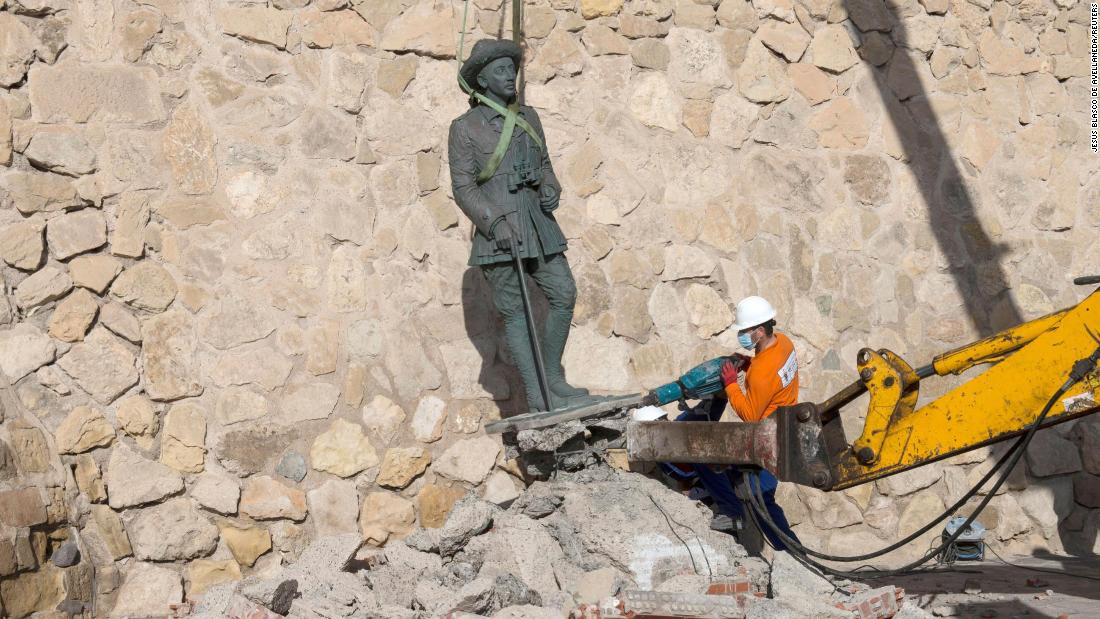The removal was scheduled to coincide with the 40th anniversary of an attempted coup by Franco supporters, a government source told CNN.
There were 14 votes in favor, 10 abstentions and one vote against, from the right-wing Vox party, he said.
“As of today, Melilla regains dignity and justice,” said Gloria Rojas, Melilla’s vice president and member of the Socialist Party, according to a PSOE tweet.
The bronze statue was made by sculptor Enrique Novo and erected in 1978, three years after Franco’s death, the government source said.
He celebrated his defense of Melilla in 1921, during the Rif War against the Berber tribes of Morocco’s Rif Mountains, according to the
source.
The statue was moved in 2005, but remained in public view until Tuesday, the last statue of Franco on Spanish soil, he added.
It is now stored, the source said, but its removal is permanent.
Tuesday was the anniversary of the 1981 coup attempt by military personnel who held parliamentarians in Madrid hostage for 18 hours. The attempt came just six years after Franco’s death, inaugurating Spain’s transition to democracy.
Franco ruled Spain in the late 1930s and thousands of executions were carried out by his nationalist regime during the Spanish Civil War and in the years that followed.
Franco’s Spain was officially neutral during World War II, but supported the Axis powers of Germany and Italy.
After the war, he was seen by many as the last surviving fascist dictator and was ostracized by the United Nations. His regime was partially rehabilitated during the Cold War because of Franco’s staunch anti-communist ideology.
In 2007, the Spanish government passed the Historical Memory Act, which formally condemns the Franco regime. The symbols linked to Franco must be removed from public view, the law stipulates.
In October 2019, Franco’s remains were exhumed from the great mausoleum where he was buried in 1975 to the next Mingorrubio state cemetery in El Pardo, where his wife is buried.
The exhumation was a fundamental political promise by Socialist Prime Minister Pedro Sanchez when he came to power in 2018.
Franco’s family and their far-right supporters opposed the plan and the family appealed the decision to court without success.
